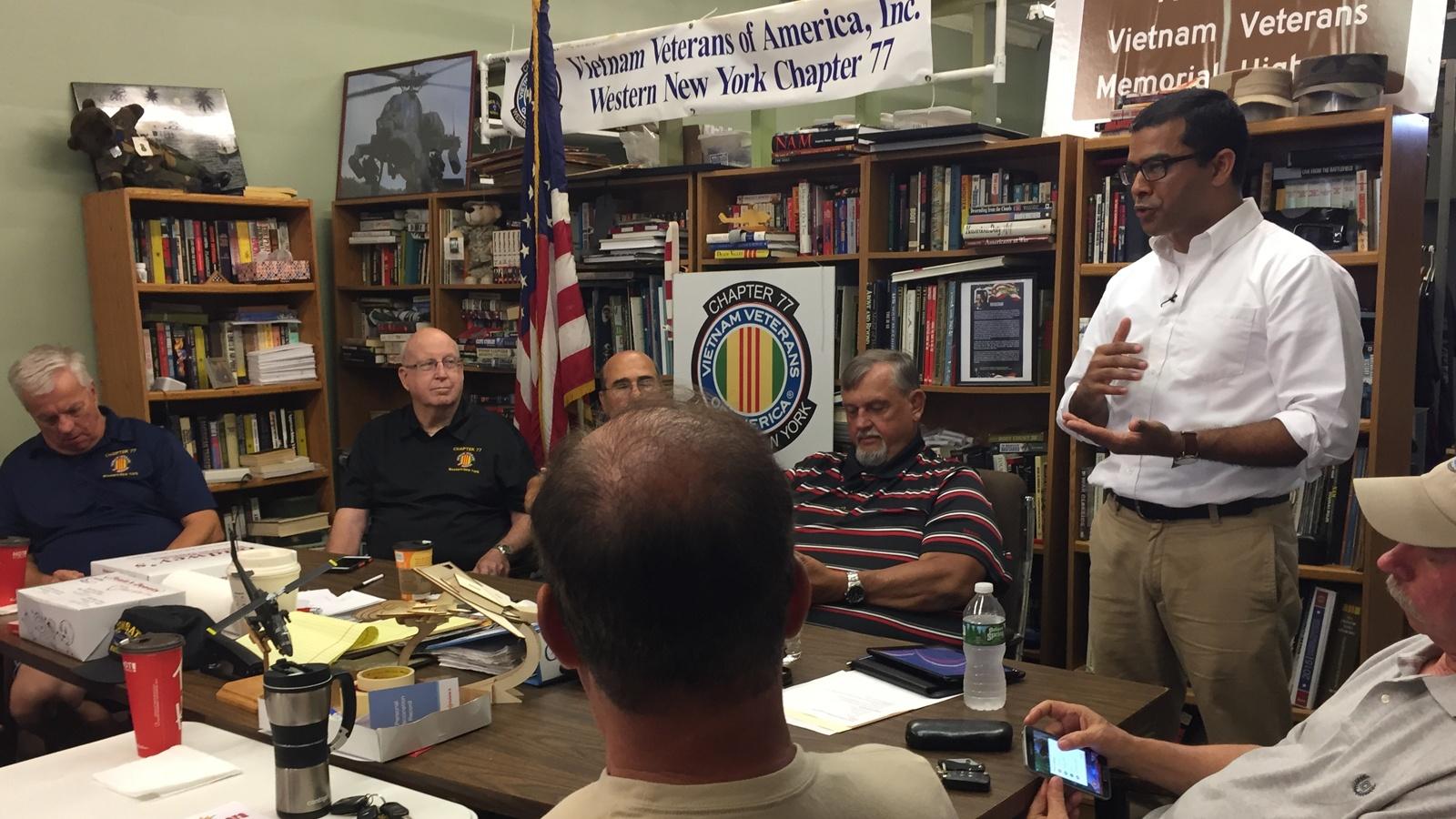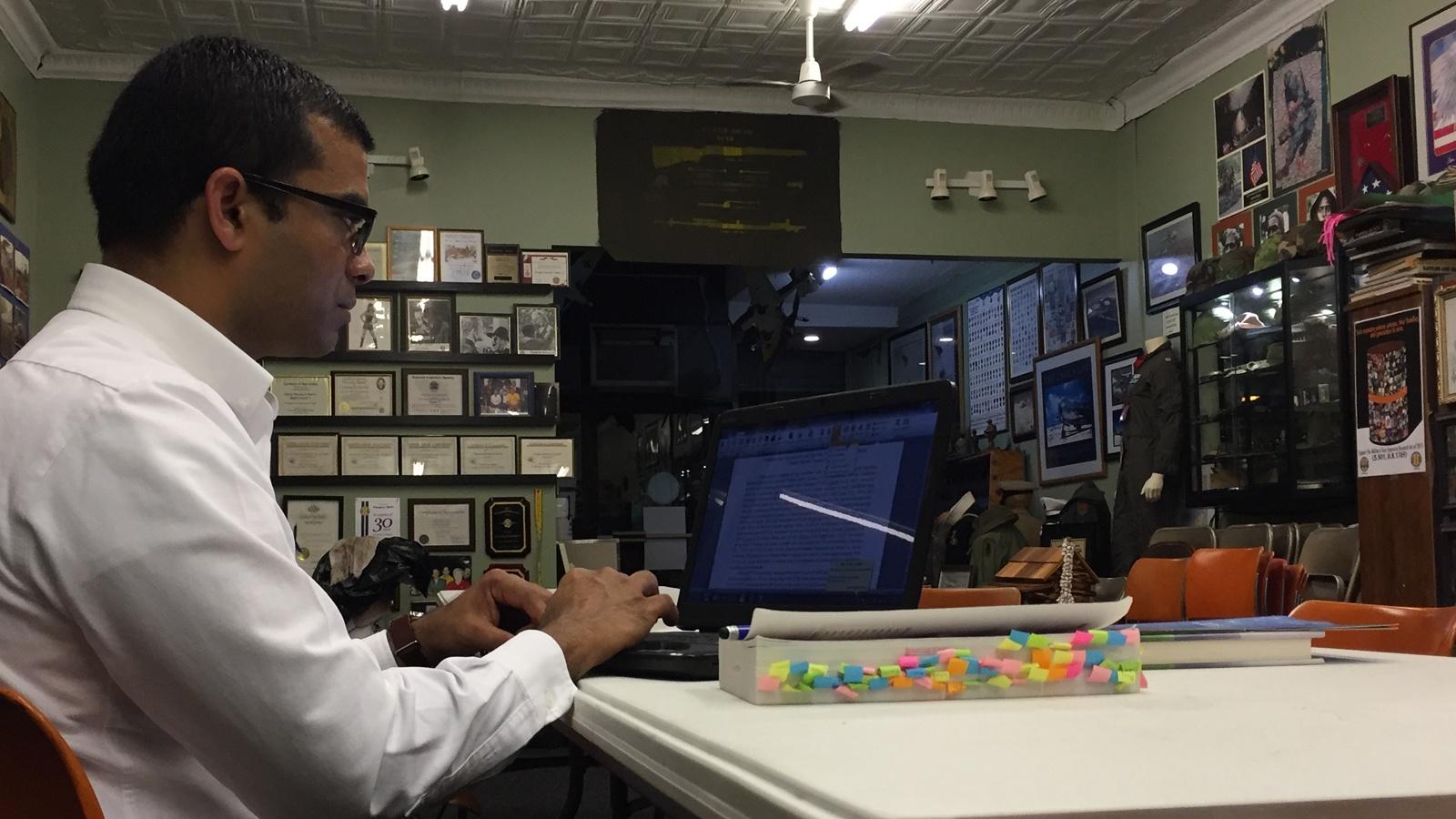Our Vietnam VoicesUB Studies the Effects of War
4:18
Published:
A graduate student looks at the effects of the Vietnam War on those who served in-country.
UB Studies the Effects of War
Fifty years after the Vietnam War, estimates say up to 500 Vietnam Era veterans die each day and only a third of all veterans who served in Vietnam are still alive. In addition, many face physical and mental health issues as a result of their war experience.While there’s still time, Thomas Chacko, a graduate student at the University at Buffalo, decided to take a closer look at a specific group of these veterans, many of whom are now in retirement, to learn more about post-traumatic stress disorder and the lesser known theory of post-traumatic growth.
Thomas studied 117 Vietnam veterans from Western New York who had “boots on the ground” during the war. In this story, he reports back to the local Vietnam Veterans of America chapter and talks about some of his preliminary findings.
“I was always interested in the aging population, and I was looking at how aging interacts with PTSD. One thing I think we need to appreciate is that PTSD cannot be understood unless we understand the environment, the situation, the actual trauma. We cannot treat a person without understanding his or her story, the entire story.”
Thomas found that retirement can be a contributor to delayed-onset PTSD. Veterans reported having a busy work and family life after the war. It was a welcome distraction at the time. Now that they have more time on their hands, or they’ve suffered the loss of a spouse or other loved one, an emptiness is allowing old memories and symptoms of PTSD to come back to the surface.
Post-traumatic growth is an idea he is learning more about from these veterans. It’s a positive change that occurs through experiencing a trauma. It’s the idea that if a person can survive a trauma, they can face anything in life. People who show signs of post-traumatic growth also tend to be extroverted, have a strong social support system, work to develop meaningful relationships, and tend to have an increased sense of spirituality.
The veterans at the filming echoed his comments about the importance of sharing their stories. One veteran commented:
“It’s been said to us, we better start talking about it before someone else writes the history, so it is good that we are talking about it here, so that history can be out there with those who have served.”
Some goals of Thomas’s work include providing data to develop better treatment and prevention for triggers of PTSD for today’s veterans, and to pass this information on to educators as they teach young people about the Vietnam War. The veterans at the filming echoed his comments about the importance of sharing their stories.

Thomas Chacko presents his findings at at the local VVA chapter headquarters.

Thomas found that retirement can be a contributor to delayed-onset PTSD.